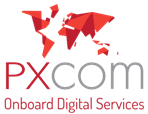


From Bucket List to Hobby List Home From Bucket List to Hobby List: What’s the Impact on Your IFE? 16…
Creative Ways to Boost Passenger Engagement Onboard This Summer Home Creative Ways to Boost Passenger Engagement Onboard This Summer 10…
The benefits of aircraft power for wireless IFE Home Why Aircraft-Powered Servers Are the Smart Choice for Your Wireless IFE…
From Seatback Screens to BYOD Home From seatback screens to Bring-Your-Own-Device (BYOD): How In-Flight Entertainment is Evolving with Bring Your…
Prepare the Groundwork for Your Future Inflight Connectivity Home Prepare the Groundwork for Your Future Inflight Connectivity 12 May 2025…
AIX Digest: Highlights from the Future of Inflight Innovation Home AIX Digest: Highlights from the Future of Inflight Innovation 24…
SkyVerse by the leading industry press Home PXCom Unveils CRM-Driven Personalization and AI Chatbot for IFE 7 May 2025 microMoments,…
The Role of Artificial Intelligence in the Digital Travel Journey Home The Role of Artificial Intelligence in the Digital Travel…
The Return of VR Headsets Onboard: A New Era for Inflight Entertainment Home The Return of VR Headsets Onboard: A…
Revolutionizing Fly-In, Fly-Out Travel: The Strategic Advantage of Wireless IFE Home Revolutionizing Fly-In, Fly-Out Travel: The Strategic Advantage of Wireless…
Edge Caching Technology: A Game-Changer for Inflight Entertainment in the Era of LEO and 5G Home Edge Caching Technology: A…
Inflight Digital Store: Addressing the Merchant of Record (MoR) Challenge Home Inflight Digital Store: Addressing the Merchant of Record (MoR)…
ATG (Air-to-Ground) Tech Challenging Satellite Dominance Home Air-to-Ground (ATG) Tech Challenging Satellite Dominance 5 November 2024 Technology, traveler As passengers’…
Service Level Agreements (SLAs) for In-Flight Entertainment (IFE) Home Service Level Agreements (SLAs) for In-Flight Entertainment (IFE): What Should You…
Content adapted to your flight operations Home IS YOUR INFLIGHT CONTENT REALLY ADAPTED TO YOUR FLIGHT OPERATIONS? 15 October 2024…
Loyalty Management in the Airline Industry Home Loyalty Management in the Airline Industry 15 October 2024 Digital Services, Get the…
Cyber Risks on passenger portals Home Cyber risks on passenger portals 23 July 2024 Digital Services, Get the best ROI,…
Use Your IFE for Storytelling Home Use Your IFE for Storytelling 14 August 2024 Digital Services, Get the best ROI,…
TRAVELER’S MICRO-MOMENTS Home Capturing the Traveler's Micro-Moments 26 April 2022 microMoments, Technology, traveler Time Is No Longer Measured in Days,…
IFE Manufacturer vs Integrator Home IFE Manufacturer vs IFE Integrator 27 May 2024 Digital Services, Get the best ROI, Technology…
LEO Battle: OneWeb vs Kuiper Home LEO Battle: OneWeb vs Kuiper 8 July 2024 Digital Services, Get the best ROI,…
IFE Manufacturer vs Integrator Home IFE Manufacturer vs IFE Integrator 27 May 2024 Digital Services, Get the best ROI, Technology…
How to optimize your passenger portal to generate more revenue Home How to optimize your passenger portal to generate more…
Prepare for Paris 2024 Olympic Games Digital Inflight Experience Home Prepare for Paris 2024 Olympic Games Digital Inflight Experience 4…
How to manage outdated IFE seatback screens Home How to manage outdated IFE seatback screens 26 March 2024 Digital Services,…
Connect your IFE to your eXperience Management (XM) platform Home Connect your IFE to your eXperience Management (XM) platform 29…
Inflight Cyber Risks Home Protecting You and Your Passengers from Cyber Risks 25 January 2024 Digital Services, Get the best…
SUSTAINABILITY COMMUNICATION STRATEGY Home PROMOTE YOUR SUSTAINABILITY COMMUNICATION STRATEGY 11 December 2023 Digital Services, Get the best ROI, Technology HARNESS…
The Challenge of Low Bandwidth Connectivity Home Low bandwidth (L-Band) Connectivity 11 July 2023 Digital Services, Get the best ROI,…
Digital Cabin Logbook Home Digital Cabin Logbook 26 June 2023 Digital Services, Get the best ROI, Technology If you've ever…
PXCom’s Cutting-Edge Digital Services Take Off at AIX2023 Home PXCom Unveils Innovative Onboard Digital Services at AIX2023 9 May 2023…
SEATBACK SCREENS & IFC SERVER Home BALANCE YOUR CONTENT BETWEEN SEATBACK SCREENS & IFC SERVER 22 July 2020 Digital Services,…
Customer Data Platform (CDP) – Part 2 Home Part 2: CDP in Travel Industry 2 November 2022 Digital Services, Get…
Your WiFi-IFE Project: Standalone Battery vs. Aircraft Power Home Your Wifi-IFE project : Standalone Battery or Aircraft Power? 5 April…
Customer Data Platform (CDP) – Part 1 Home The Turnkey solution for unifying Customer Data: Customer Data Platform (CDP) 4…
Inflight Connectivity: FREE WiFi Onboard Home Free Connectivity for all in the near future on all flights (short, medium, and…
Future of Connectivity Home The Future of Connectivity for Aeronautics 1 June 2022 Digital Services, Get the best ROI, Technology…
GEO vs LEO Satellites Home Source: Aerospace America How do Geocentric types of satellites (LEO, MEO) differ from Geostationary satellites…
Inflight Magazine Home Credits: Air France, IMM International, United.com, KLM The Future of Inflight Magazine 14 February 2022 Digital Services,…
ROI-based IFE Project Home ROI-BASED IFE PROJECTS ARE MORE IMPORTANT THAN EVER 26 October 2021 IFE, monetization, ROI Past the…
Digital Wallet will change Air Travel Home How Digital Wallets Are Revolutionizing Air Travel 9 August 2022 Digital Services, Get…
RAM Digital Innovation Challenge Home PXCom awarded at Royal Air Maroc #RAMDIGINNOV Challenge 18 July 2022 Digital Services, Get the…
BENEFITS of IFEC Home Source: Tal Aviation From a physical experience to a phygital one, thanks to your wifi-IFE platform…
IFE TO THE RESCUE Home WHEN IFE COMES TO THE RESCUE OF FLIGHT ATTENDANTS! 25 June 2022 Digital Services, IFE,…
Digital AD: IVT-FREE Zone Home DIGITAL INFLIGHT ADVERTISING: AN IVT-FREE ZONE 20 May 2022 Advertising, IVTFREE, Technology In late 2015,…
Overview of INFLIGHT CONTENT PART 2 Home Part 2 : A COMPREHENSIVE OVERVIEW OF THE INFLIGHT CONTENT OFFERING 31 March…
OVERVIEW of INFLIGHT CONTENT PART 1 Home Part 1 : A COMPREHENSIVE OVERVIEW OF THE INFLIGHT CONTENT OFFERING 10 March…